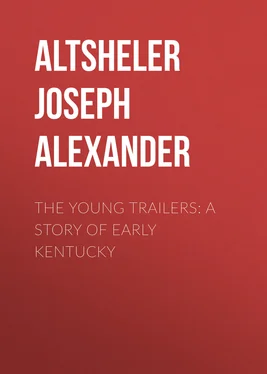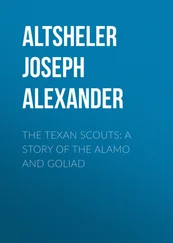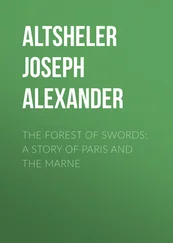Joseph Altsheler - The Young Trailers - A Story of Early Kentucky
Здесь есть возможность читать онлайн «Joseph Altsheler - The Young Trailers - A Story of Early Kentucky» — ознакомительный отрывок электронной книги совершенно бесплатно, а после прочтения отрывка купить полную версию. В некоторых случаях можно слушать аудио, скачать через торрент в формате fb2 и присутствует краткое содержание. Жанр: foreign_children, foreign_antique, foreign_prose, prose_military, на английском языке. Описание произведения, (предисловие) а так же отзывы посетителей доступны на портале библиотеки ЛибКат.
- Название:The Young Trailers: A Story of Early Kentucky
- Автор:
- Жанр:
- Год:неизвестен
- ISBN:нет данных
- Рейтинг книги:3 / 5. Голосов: 1
-
Избранное:Добавить в избранное
- Отзывы:
-
Ваша оценка:
- 60
- 1
- 2
- 3
- 4
- 5
The Young Trailers: A Story of Early Kentucky: краткое содержание, описание и аннотация
Предлагаем к чтению аннотацию, описание, краткое содержание или предисловие (зависит от того, что написал сам автор книги «The Young Trailers: A Story of Early Kentucky»). Если вы не нашли необходимую информацию о книге — напишите в комментариях, мы постараемся отыскать её.
The Young Trailers: A Story of Early Kentucky — читать онлайн ознакомительный отрывок
Ниже представлен текст книги, разбитый по страницам. Система сохранения места последней прочитанной страницы, позволяет с удобством читать онлайн бесплатно книгу «The Young Trailers: A Story of Early Kentucky», без необходимости каждый раз заново искать на чём Вы остановились. Поставьте закладку, и сможете в любой момент перейти на страницу, на которой закончили чтение.
Интервал:
Закладка:
The feeling was that of a young boy, the instinct of one who had not learned to kill, and he suppressed it. Men had not yet thought to spare the wild animals, or to consider them part of a great brotherhood, least of all on the border, where the killing of game was a necessity. And so Henry, after a moment's hesitation, the cause of which he himself scarcely knew, picked the spot near the shoulder that Ross had mentioned, and pulled the trigger.
The stag stood for a moment or two as if dazed, then leaped into the air and ran to the edge of the woods, where he pitched down head foremost. His body quivered for a little while and then lay still.
Henry was proud of his marksmanship, but he felt some remorse, too, when he looked upon his victim. Yet he was eager to tell his father and his young sister and brother of his success. They took off the pelt and cut up the deer. A part of the haunch Henry ate for dinner and the antlers were fastened over the fireplace, as the first important hunting trophy won by the eldest son of the house.
Henry did not boast much of his triumph, although he noticed with secret pride the awe of the children. His best friend, Paul Cotter, openly expressed his admiration, but Braxton Wyatt, a boy of his own age, whom he did not like, sneered and counted it as nothing. He even cast doubt upon the reality of the deed, intimating that perhaps Ross or Sol had fired the shot, and had allowed Henry to claim the credit.
Henry now felt incessantly the longing for the wilderness, but, for the present, he helped his father furnish their house. It was too late to plant crops that year, nor were the qualities of the soil yet altogether known. It was rich beyond a doubt, but they could learn only by trial what sort of seed suited it best. So they let that wait a while, and continued the work of making themselves tight and warm for the winter.
The skins of deer and buffalo and beaver, slain by the hunters, were dried in the sun, and they hung some of the finer ones on the walls of the rooms to make them look more cozy and picturesque. Mrs. Ware also put two or three on the floors, though the border women generally scorned them for such uses, thinking them in the way. Henry also helped his father make stools and chairs, the former a very simple task, consisting of a flat piece of wood, chopped or sawed out, in which three holes were bored to receive the legs, the latter made of a section of sapling, an inch or so in diameter. But the baskets required longer and more tedious work. They cut green withes, split them into strips and then plaiting them together formed the basket. In this Mrs. Ware and even the little girl helped. They also made tables and a small stone furnace or bake-oven for the kitchen.
Their chief room now looked very cozy. In one corner stood a bedstead with low, square posts, the bed covered with a pure white counterpane. At the foot of the bedstead was a large heavy chest, which served as bureau, sofa and dressing case. In the center of the room stood a big walnut table, on the top of which rested a nest of wooden trays, flanked, on one side, by a nicely folded tablecloth, and on the other by a butcher knife and a Bible. In a corner was a cupboard consisting of a set of shelves set into the logs, and on these shelves were the blue-edged plates and yellow-figured teacups and blue teapot that Mrs. Ware had received long ago from her mother. The furniture in the remainder of the house followed this pattern.
The heaviest labor of all was to extend the "clearing"; that is, to cut down trees and get the ground ready for planting the crops next spring, and in this Henry helped, for he was able to wield an ax blow for blow with a grown man. When he did not have to work he went often to the river, which was within sight of Wareville, and caught fish. Nobody except the men, who were always armed, and who knew how to take care of themselves, was allowed to go more than a mile from the palisade, but Henry was trusted as far as the river; then the watchman in the lookout on top of the highest blockhouse could see him or any who might come, and there, too, he often lingered.
He did not hate his work, yet he could not say that he liked it, and, although he did not know it, the love of the wild man's ways was creeping into his blood. The influence of the great forests, of the vast unknown spaces, was upon him. He could lie peacefully in the shade of a tree for an hour at a time, dreaming of rivers and mountains farther on in the depths of the wilderness. He felt a kinship with the wild things, and once as he lay perfectly still with his eyes almost closed, a stag, perhaps the brother to the one that he had killed, came and looked at him out of great soft eyes. It did not seem odd at the time to Henry that the stag should do so; he took it then as a friendly act, and lest he should alarm this new comrade of the woods he did not stir or even raise his eyelids. The stag gazed at him a few moments, and then, tossing his great antlers, turned and walked off in a graceful and dignified way through the woods. Henry wondered where the deer would go, and if it would be far. He wished that he, too, could roam the wilderness so lightly, wandering where he wished, having no cares and beholding new scenes every day. That would be a life worth living.
The next morning his mother said to his father:
"John, the boy is growing wild."
"Yes," replied the father. "They say it often happens with those who are taken young into the wilderness. The forest lays a spell upon them when they are easy to receive impressions."
The mother looked troubled, but Mr. Ware laughed.
"Don't bother about it," he said. "It can be cured. We have merely to teach him the sense of responsibility."
This they proceeded to do.
CHAPTER III
LOST IN THE WILDERNESS
The method by which Mr. and Mrs. Ware undertook to teach Henry a sense of responsibility was an increase of work. Founding a new state was no light matter, and he must do his share. Since he loved to fish, it became his duty to supply the table with fish, and that, too, at regular hours, and he also began to think of traps and snares, which he would set in the autumn for game. It was always wise for the pioneer to save his powder and lead, the most valuable of his possessions and the hardest to obtain. Any food that could be procured without its use was a welcome addition.
But fishing remained his easiest task, and he did it all with a pole that he cut with his clasp knife, a string and a little piece of bent and stiffened wire. He caught perch, bass, suckers, trout, sunfish, catfish, and other kinds, the names of which he did not know. Sometimes when his hook and line had brought him all that was needed, and the day was hot, he would take off his clothing and plunge into the deep, cool pools. Often his friend, Paul Cotter, was with him. Paul was a year younger than Henry, and not so big. Hence the larger boy felt himself, in a certain sense, Paul's teacher and protector, which gave him a comfortable feeling, and a desire to help his comrade as much as he could.
He taught the smaller lad new tricks in swimming, and scarcely a day passed when two sunburned, barefooted boys did not go to the river, quickly throw off their clothing, and jump into the clear water. There they swam and floated for a long time, dived, and ducked each other, and then lay on the grass in the sun until they dried.
"Paul," said Henry once, as they were stretched thus on the bank, "wouldn't you like to have nothing to do, but wander through the woods just as you pleased, sleep wherever you wished, and kill game when you grew hungry, just like the Indians?"
Henry's eyes were on the black line of the forest, and the blue haze of the sky beyond. His spirit was away in the depths of the unknown.
"I don't know," replied Paul. "I guess a white boy has to become a white man, after a while, and they say that the difference between a white man and the Indian is that the white man has to work."
Читать дальшеИнтервал:
Закладка:
Похожие книги на «The Young Trailers: A Story of Early Kentucky»
Представляем Вашему вниманию похожие книги на «The Young Trailers: A Story of Early Kentucky» списком для выбора. Мы отобрали схожую по названию и смыслу литературу в надежде предоставить читателям больше вариантов отыскать новые, интересные, ещё непрочитанные произведения.
Обсуждение, отзывы о книге «The Young Trailers: A Story of Early Kentucky» и просто собственные мнения читателей. Оставьте ваши комментарии, напишите, что Вы думаете о произведении, его смысле или главных героях. Укажите что конкретно понравилось, а что нет, и почему Вы так считаете.












